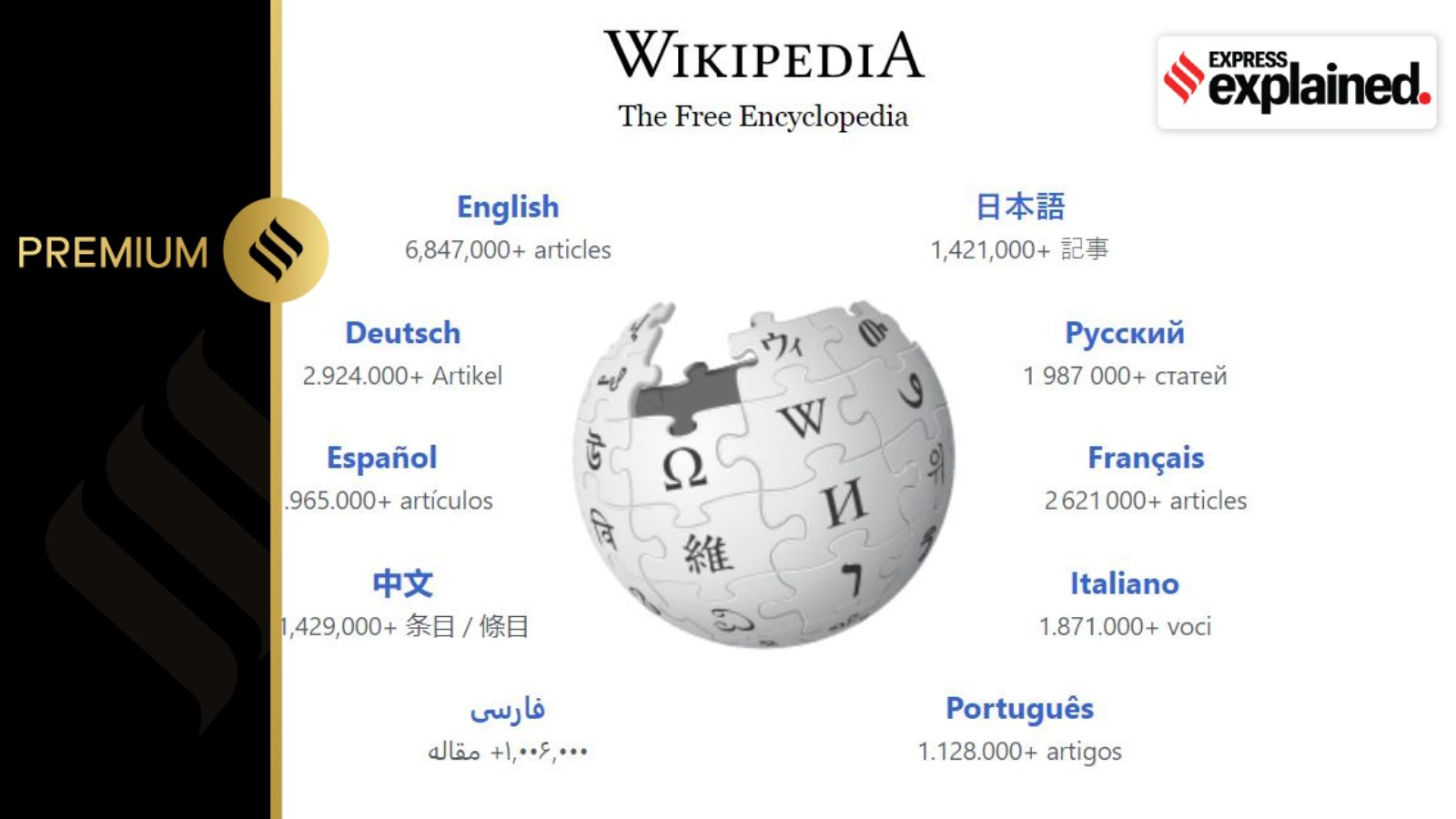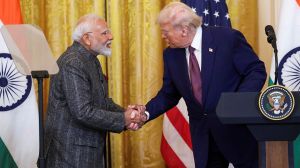Why has ANI slapped a defamation case against Wikipedia?
The petitioner has sought damages to the tune of Rs 2 crore, alleging that the said content is “palpably false” and defamatory, and that its reputation was being tarnished and goodwill discredited.
 News agency Asian News International (ANI) moved the Delhi High Court against Wikipedia for allegedly allowing defamatory content on its platform against ANI’s wiki page. (Wikipedia)
News agency Asian News International (ANI) moved the Delhi High Court against Wikipedia for allegedly allowing defamatory content on its platform against ANI’s wiki page. (Wikipedia)News agency Asian News International (ANI) has moved Delhi High Court against Wikipedia for allowing allegedly defamatory content on ANI’s wiki page.
A Bench of Justice Navin Chawla has sought a response from Wikipedia, and listed the matter for further hearing on August 20.
Complaint against Wikipedia
The petitioner has sought damages to the tune of Rs 2 crore, alleging that the said content is “palpably false” and defamatory, and that its reputation was being tarnished and goodwill discredited.
The petition contends that the “false and misleading content” on Wikipedia raised doubts about ANI’s credibility as a news agency. It says that the editing history of the page shows that in April, a series of edits were made reflecting the true and factual position, but these were “deliberately reversed” in May to cause harm to the petitioner’s reputation.
Content posted on Wikipedia
Wikipedia, which started in 2001, itself does not produce the content for its online encyclopedia. It is a collaborative, open source, nonprofit platform whose users contribute to the content of the website.
The suit against Wikipedia, rather than the individuals who could have made the edits to the page, is intended to ensure enforcement by holding the intermediary liable.
Laws invoked in the case
ANI has argued that Wikipedia is a significant social media intermediary under the meaning of Section 2(1)(w) of the Information Technology Act, 2000: “any person who on behalf of another person receives, stores or transmits that record or provides any service with respect to that record and includes telecom service providers, network service providers, Internet service providers, web-hosting service providers, search engines, online payment sites, online-auction sites, online-market places and cyber cafes”.
The petitioner has also relied on Sections 79(2) and (3) of the Act, which lay down the requirements for the “safe harbour clause” to come into effect.
The safe harbour clause
Section 79 of the IT Act (Exemption from liability of intermediary in certain cases) states that an intermediary shall not be held legally or otherwise liable for any third-party information, data, or communication link made available or hosted on its platform.
This protection shall be applicable if the intermediary does not in any way initiate the transmission of the message in question, select the receiver of the transmitted message, or modify any information contained in the transmission, according to Section 79(2)(b).
Another requirement for safe harbour protection is that the intermediary must adhere to the Intermediary Guidelines and Digital Media Ethics Code, which came into force in 2021. The guidelines mandated setting up a grievance-redressal mechanism, along with a resident grievance officer, a chief compliance officer, and a nodal contact person.
Section 79(3) states that the protection will not apply if the intermediary, despite being informed by the government or its agencies, does not immediately remove or disable access to the material in question.
Additionally, the intermediary cannot tamper with any evidence of these messages or content on its platform, failing which it would lose its protection under the Act.
Rule 7 of the IT Rules, 2021 states that if “an intermediary fails to observe these rules, the provisions sub-section (1) of section 79 of the Act shall not be applicable”, and “the intermediary shall be liable for punishment under any law for the time being in force”.
Section 230 of the US Communications Decency Act is analogous to Section 79 of the IT Act. It states that “no provider or user of an interactive computer service shall be treated as the publisher or speaker of any information provided by another information content provider”.
Previous rulings of SC
On October 10, 2022, the Supreme Court dismissed a batch of petitions filed by the Ayurvedic Medicine Manufacturers Organisation of India, alleging that an article published on Wikipedia about them was defamatory. A bench of Justices A S Bopanna and P S Narasimha said, “You can edit the Wikipedia article,” and asked the petitioners to avail “any other remedy available to them” under the law.
On January 17, 2023 a Bench of Justices Vikram Nath and Surya Kant in Hewlett Packard India Sales vs. Commissioner of Customs noted that adjudicating authorities, especially the Commissioner of Customs (Appeal), had extensively referred to online sources such as Wikipedia to support their conclusion.
The court said: “While we…acknowledge the utility of these platforms which provide free access to knowledge across the globe, but we must also sound a note of caution against using such sources for legal dispute resolution. …These sources…are based on a crowd-sourced and user-generated editing model that is not completely dependable …and can promote misleading information.”
- 01
- 02
- 03
- 04
- 05






































